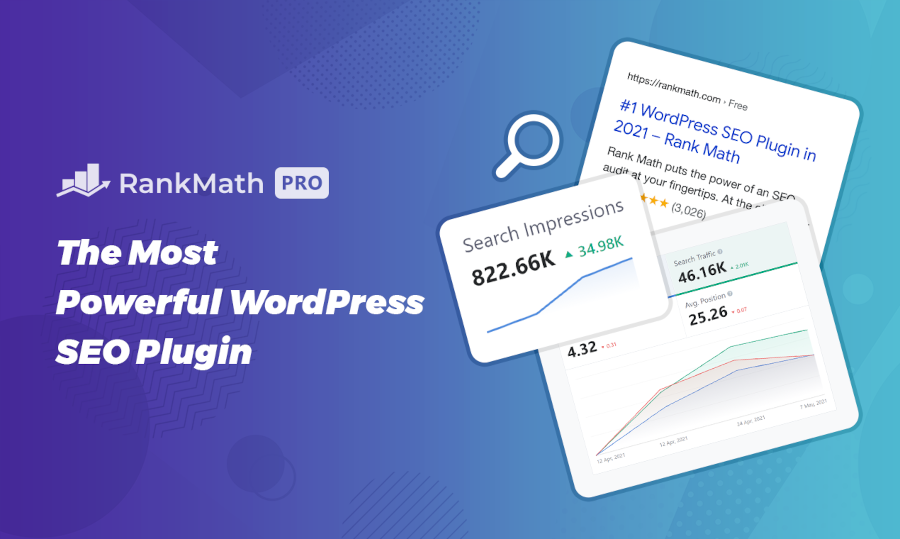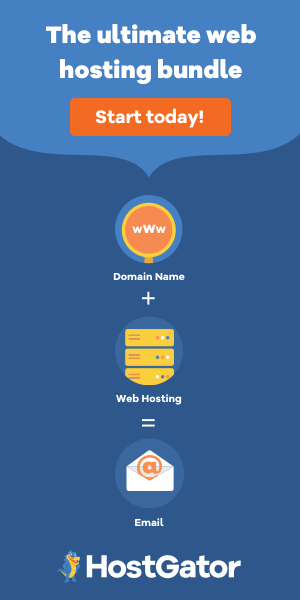Listen To This:
A webhosting company provides a virtual storefront for your business by hosting your website online. Hence, you should take as much care while selecting a “virtual” storefront as you would while choosing a “real” storefront.
Choosing the right web hosting company is one of the most critical decisions for any business since selecting the wrong one can leave them with a slow, unreliable, or even non-functional website.
In our previous article, we had discussed what a web hosting company is and talked about everything you need to know about them. Now, here is a complete guide to choosing the right website hosting company for your company.
Table of Contents
Know what you need to look out for
Your research for a web hosting company should start with getting an understanding of what you need to look out for.
Choosing a web hosting company can seem daunting, especially when so many hosting companies offer so many distinctive features. Here are some of the critical things that you will need to consider while choosing your website hosting company.
1. Stability and reliability
One of the most important parts of hosting a website is making sure that it’s on a safe web hosting company with high availability. A web hosting company that also provides reliability and uptime guarantees, which are critical features for websites that need to be always available. Try to find a service that has provided at least 99.8% reliability in the past 1 year
2. Cost
Making your website accessible to the Internet is a costly endeavor. The cost of web hosting starts from $3 per month. You may have to go for a costlier package if you have a large site or want top-notch performance.
Apart from this you will have to pay for domain registration, and any other extra hosting feature like premium DNS that you will subscribe to.
To get your site started, you’ll need about $15 for domain registration and at least $30 for web hosting. Depending on what you want in your hosting and how much time you want to spend setting up the website, you can find something that will suit your needs at a price that doesn’t break the bank.
3. Security
Web hosting security is an important topic that you need to be aware of. Every web hosting company must provide customers with safeguards to protect themselves from spam, viruses, and other potential causes of harm.
However, these measures may not always be enough because customers should also take steps to make sure their data is safe. You must learn about the various security implementations that your web host offers and help safeguard your data by implementing the best practices shown in this article.
4. Facility to easily build websites
Years ago, building one’s website required knowing how to code and use HTML – not as straightforward as it sounds. Times have changed and now you can get a simple, elegant, and professional-looking website up and running in less than 15 minutes.
Many web hosting providers provide easy-to-use website builders so that even novices can build websites on their own. If you plan to build the website on your own, choose a web hosting company that gives you features like the one-click installation of WordPress or other easy website builders.
5. Money-back guarantee
The customer service department of the company is committed to providing customers with an enjoyable shopping experience. Customers are given a money-back guarantee should they not be satisfied. This is to ensure that customers are confident about their purchases. A money-back guarantee means that the customer is guaranteed to get their money back should they decide not to buy a product.
6. Uptime guarantee
Any good web hosting company provides an uptime guarantee to its users to tell them that their websites will be online and available to the public for most of the time during any given month. The uptime guarantee is important for those who rely on their website to generate revenue or help them do business.
You must look for a web hosting company with an uptime guarantee of 99.9%. A reliable hosting service that provides no-downtime guarantees can provide you with more confidence on your website. The uptime guarantee will tell you how reliable the web hosting company is, and you must definitely look for one before signing up.
7. 24/7 support
Look for a web hosting service that provides prompt customer service. This way, you can get your questions answered and your needs met. Most services offer customer service through live chat and email support. Some of them even offer a helpline service you can call.
Before buying a hosting package you can speak/chat with an agent to learn about the various plans and options that the company offers, as well as their cancellation policies and other necessary information. This will also give you an idea about how responsive their customer service is.
Look for a hosting provider that provides the highest level of customer service that will promptly take care of any issues that arise. Numerous things can go wrong with hosting but knowing that you have help ready at hand will give you additional peace of mind.
8. Support forum
Most web hosts offer a free support forum for their customers to ask questions and get answers from other users of the hosting package they have purchased. You can also use your email address if you would like, but this is not mandatory in most cases.
9. Addon services
Several web hosting companies offer free and paid add-on services for enhancing your website building experience.
Some of the popular free addons are:
a. Free Domain Name
A domain name is the web address that users must type to open your website. You must pay to book a domain name for a year and then renew them every successive year.
Some hosting companies offer free domain names for life as an addon to their hosting plans. You may want to look for a web hosting company if you want to save the cost of renewing the domains.
b. Free Website Builder
Website builders are Do It Yourself tools for building a website by yourself. These can save you the cost of hiring a web developer.
Some companies offer free website builders with their hosting packages, while others will provide you with a coupon code to use when purchasing one.
c. Free site migration
This is the process of moving your website from one host to another. This can be very costly if you are not careful, so it’s best to have an expert do this for you.
Many websites hosting companies provide this as a free service. When you’re ready to move your website from one hosting company to another, check if the new web hosting company offers this facility. In most cases, there are no fees involved and it can be completed in a matter of minutes.
d. Free SSL certificate
If you want to secure your website and ensure that it is safe from hackers, then consider getting a free SSL certificate for your site. Many hosting providers provide free SSL these days, which can save you the hassle and cost of renewing your premium SSL every year.
e. Free customization
Some companies offer free customization services for your website. This includes changing the design, content, and other aspects of the site.
Steps for finding the right host
Now let us discuss the process you need to follow while choosing the best web hosting service for your needs.
Step 1: Know what kind of web host you need
When it comes to web hosting, you need to understand your business needs. That way you’ll be able to select a web hosting package that’s right for your business. If your website features video blogging, live streaming, and the ability for visitors to register and upload their videos, then your website will require more features than someone who just uses their website as a simple resume.
Shared web hosting packages are not designed for websites that receive a lot of traffic. They’re engineered to accommodate many, many websites each having modest amounts of traffic. If your website is getting a lot of traffic, you should consider an enterprise solution such as Virtual Private Server (VPS) hosting or a dedicated server.
Step 2: Choose the right hosting package
Web hosting packages come in all sizes and price points. Shared Hosting, VPS, Dedicated Servers, Cloud Hosting, WordPress Hosting….the choices can often be mind boggling.
Smaller websites are often hosted on “shared” web hosting accounts which means several different websites are sharing the same server space and resources. This not only reduces your site’s performance (it will be much slower than if it were on a dedicated hosting plan) but also increases the chances of your website being hacked.
The difference between hosting on an inexpensive shared hosting plan and using a VPS or cloud server is like the difference between driving a 10-mile car trip to town vs. taking a 90-minute bus ride. A VPS gives you a much faster, higher quality web experience and brings your site up to the level of the sites located on a high-end, dedicated server.
Step 3: Read The reviews
When researching the reliability and reputation of web hosts, you should always check out various websites for reviews. Make sure the sites you visit are reputable and pay special attention to feedback left by other website owners.
When researching a web hosting company make sure to look at user reviews posted online. These will give you an idea of the types of problems users are having with the host. It’s also a clever idea to go to the host’s site and read some of the comments left by current or past customers. If you pay attention to how the company responds to complaints, if it responds at all, you’ll understand how good the company is.
Step 4: Get the right amount of bandwidth
The amount of bandwidth you have on your website will determine how quickly your website loads. This is a particularly crucial factor when running a business online. A slow loading site can lead to a lower conversion rate and poor user experience. There are several factors that you need to consider while deciding on the total bandwidth for your website, including the number of visitors it gets, the size of the images you use, and how often you update them.
The amount of bandwidth you need for your website will depend on the type and size of the site. For example, an e-commerce website will require a different amount of bandwidth than a simple blog. You will also need to keep in mind that the size of your website and the number of visitors it gets may increase fast. The larger it will get, the more bandwidth it will require. So better to go for a hosting package which can give you some extra resources when you need them.
Step 5: Don’t get stuck on price
As a new business owner with a limited budget, it’s very tempting to go with the cheapest web hosting company you can find. This can be a big mistake.
While it is true that there are some web hosting companies offering ridiculously cheap hosting packages (some even offer free hosting), they always have some caveat attached to those. Either they will not let you add your own domain, or their resource limits will be restricted. If you choose them, you will be stuck with extremely limited storage, limited CPU power or limited bandwidth.
Having such limitations will hamper the growth of your website and even prevent it from appearing in search results. Since search engines like Google have started to consider site speed as a major ranking factor, they will not show your website to their users if your site is slow.
Hence it will be better to avoid those cheap web hosting packages. Remember that you get what you pay for… plain and simple. The lowest price always means the lowest quality too. You will be much better off spending a bit more money on a good web hosting company. They have top-notch professionals to take care of the technical aspects of your website so you can spend more time on the fun stuff, like growing your business.
Step 6: Understand the Terms of Service
It can be tempting to just click “I accept” when you are signing up for a new web hosting service, but it’s important to read the terms of service first. You may be surprised at what you find – some companies reserve the right to track your activities, or even sell your data. Others may require that you waive your right to sue them in court.
Before you agree to anything, take a few minutes to read the terms and see what you need to agree to. If there’s anything you don’t like, or if you feel like the company is asking for too much, consider looking for a different service. After all, it’s your data and your privacy that are at stake.
Step 7: Evaluate the quality of customer support
When you are researching web hosting companies, always look for a way to contact customer support. Not only will this give you an idea of how responsive the company is, but it will also give you a chance to ask any questions you might have about the hosting service.
Step 8: Know their Backup Plan
With cybersecurity incidents like hacking on the rise, there is always a chance that your website might go down or even get hacked. In such instances, you will have to quickly get your website fully functional and accessible to your users once again. This is going to be possible only if you have a backup copy of the site available.
That is why you should only use web hosting companies that offer a reliable backup plan. They should take a backup of your entire site on a daily or weekly basis. That way if anything should happen to your website, they’ll be able to quickly restore a backup copy for you and get the site up and running quickly.
Step 9: Security features
Since your website is going to be available online 24×7, it will attract the unwanted attention of mischievous people especially when it becomes popular. They will try to attack your site and gain access to it with the intention to take it over. Once that happens, they will ask for a ransom to release it, or even commit other types of fraud.
These days, most web hosting companies provide some level of protection against these attacks.
You should make sure your web host can provide an “SSL certificate” which is a special software onto their web server that encrypts your customers’ credit card details before it reaches your site. This prevents anyone who is ‘listening in’ on your website from capturing this information.
Another common protection is called a “Firewall“. These thwart attacks before they reach your server, thereby keeping your site secure.
It’s important for you to look for a web hosting company that provides these features. These will give you some peace of mind that your site is safe and secure.
Conclusion
There is no doubt that choosing the right hosting company can be a time-consuming and overwhelming task. You can get as technical or as simple as you want with your website hosting. However, if you do not have the right type of hosting, your website will never achieve its full potential. That’s why you must spend some time to find a web hosting company that deeply understands the needs of online marketers, is affordable and provides the maximum satisfaction guarantee.
The good news is that there are plenty of top-notch companies to choose from. So do your research and go for the one that is perfect for your web hosting needs.









Leave a Reply